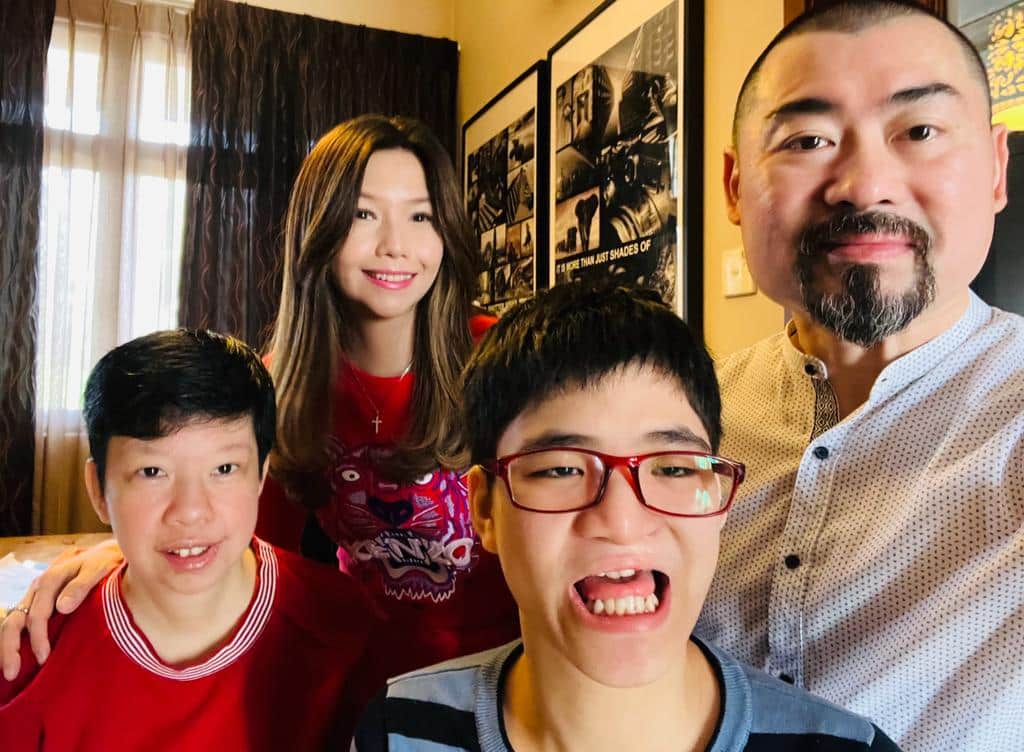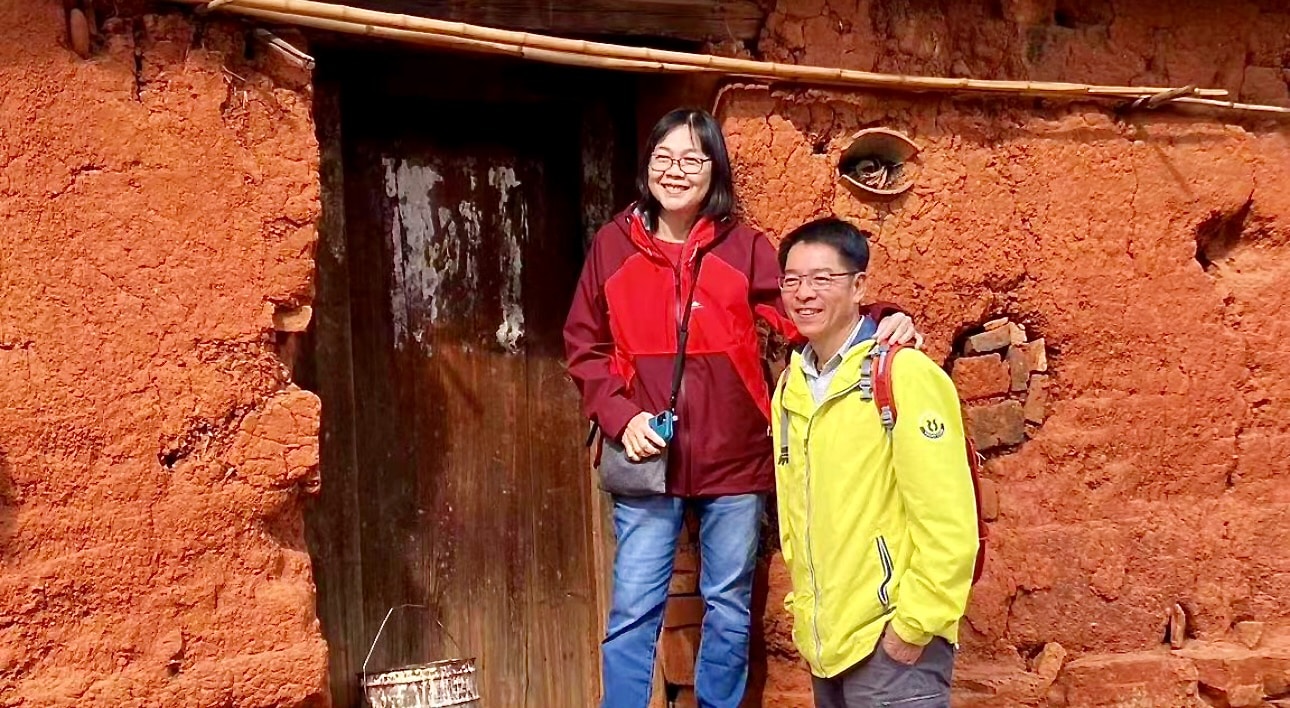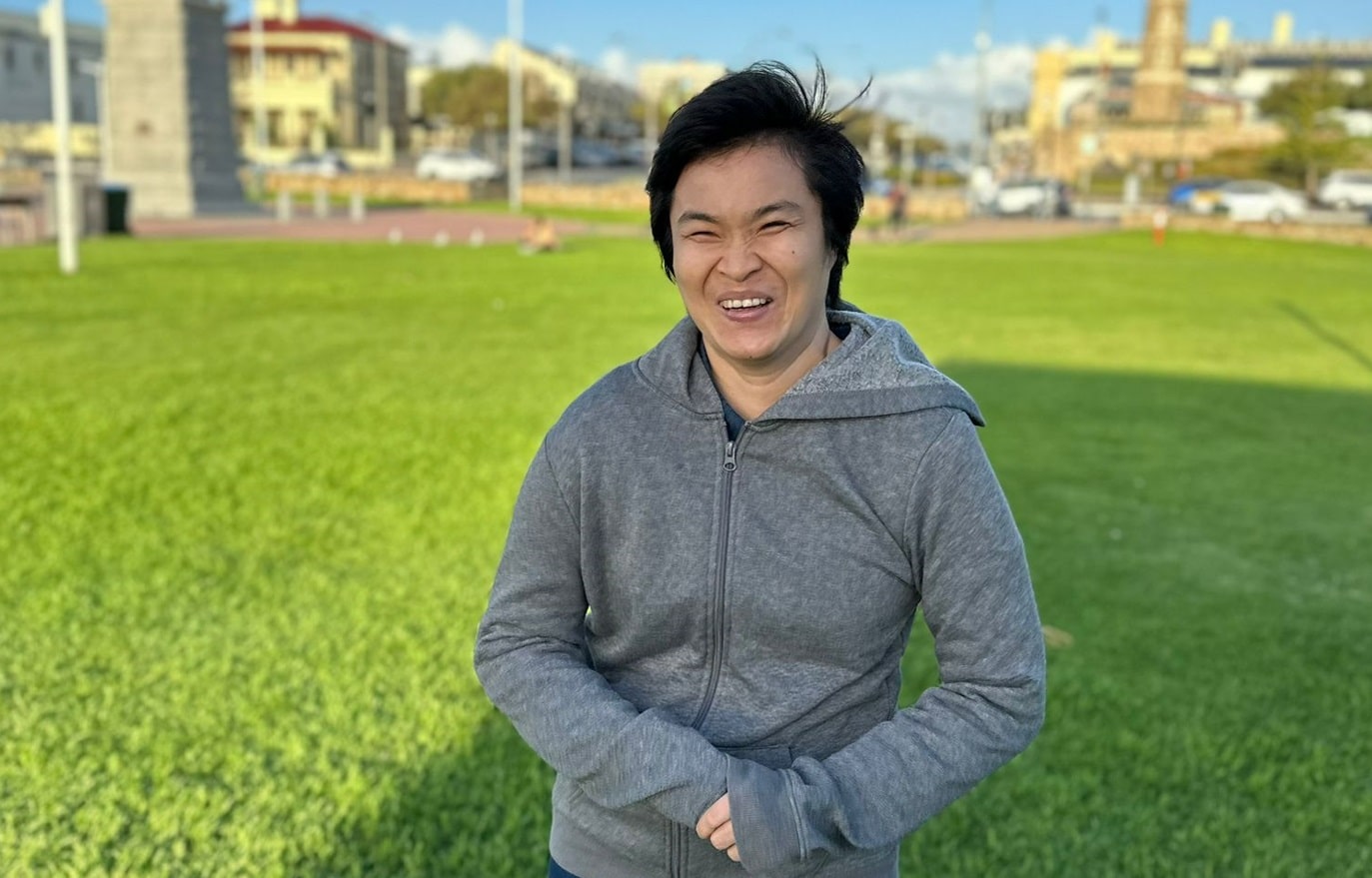“Everyone is indispensable”: They started a small group that welcomes those with special needs
by Gracia Lee // June 8, 2024, 2:54 pm
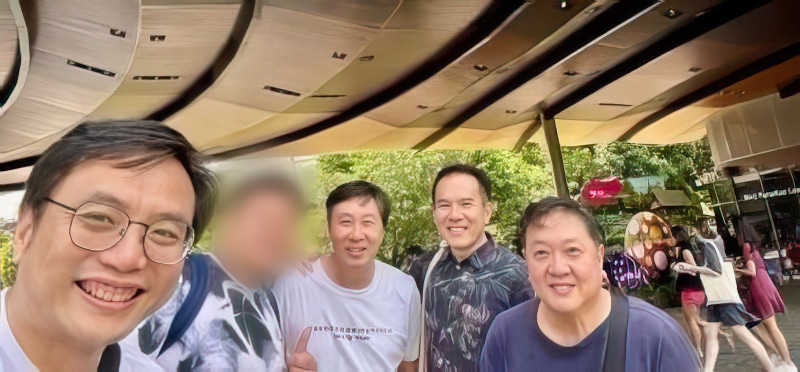
"After some time the lines between those who are serving and those who are so-called being served become blurred,” said Dr Wei Ker Chiah, who started a men's small group that opens its arms to those with autism. Photo courtesy of Dr Wei Ker Chiah.
When Jane Lim (not her real name) heard that a group of men had invited her 21-year-old son with autism to join their discipleship (cell) group, she was filled with gratitude.
“I’d been praying for godly mentors and brothers to guide him. That has always been my prayer for my son,” Jane told Salt&Light.
At the time, Alexander (not his real name) had not been attending church for six months. He had struggled to fit in with his peers at his previous church.
One of Jane’s friends had then invited him to attend the men’s discipleship group at Chapel of Christ our Hope, which is located in St Andrew’s Autism Centre and embraces people with special needs.
“I see that the cell group is so warm and that Alexander is happy. There’s brotherly love,” said Jane.
“God really answered my prayer.”
A safe space for all
Alexander’s discipleship group was formed specifically to include those with special needs, explained Dr Wei Ker Chiah.
The 49-year-old is one of three men who started the discipleship group, Koinonia Group, earlier this year.
Koinonia means fellowship in Greek.
As a psychiatrist, Ker Chiah noticed that many of his patients are “quite isolated”. Those who are Christians also struggle to fit in socially at church, with many eventually dropping out.
“They really have the heart to understand from our point of view. It’s a safe space when we can share the darkest secrets.”
While more churches are embracing those with special needs, he noted that there is a particular group that falls through the cracks: Those with high-functioning autism who struggle to fit in socially.
“Rather than letting them sit in the pews and feel isolated, we want to help them use their talents and their gifts, because they are part of the body of Christ,” said cell group leader Denis Sun, 65.
Like many cell groups, Koinonia Group meets once every two weeks for Bible study and fellowship. In the group of six, four are neurotypical while two have autism.
Alexander, who co-leads worship in the group, told Salt&Light: “I’ve learnt a lot from them. We’re not only reading the Bible but also growing together spiritually.
“They don’t discriminate or anything. They really have the heart to understand our point of view. It’s a safe space when we can share the darkest secrets.”
Discipling every part of the Body
To help more cell groups be more inclusive, Koinonia Inclusion Network (KIN) has launched a step-by-step handbook on how to nurture inclusive small groups within churches.
KIN aims to educate, equip and train Christian communities in Singapore to better embrace persons with disabilities.
Called Koinonia Groups: Nurturing Disability-Inclusive Small Groups in Your Church, the 104-page handbook includes how to set up, run and develop an inclusive small group, as well as some guidelines on how to interact with people with disabilities.
It has been reviewed by people with disabilities, their caregivers and leaders within the disability sector.
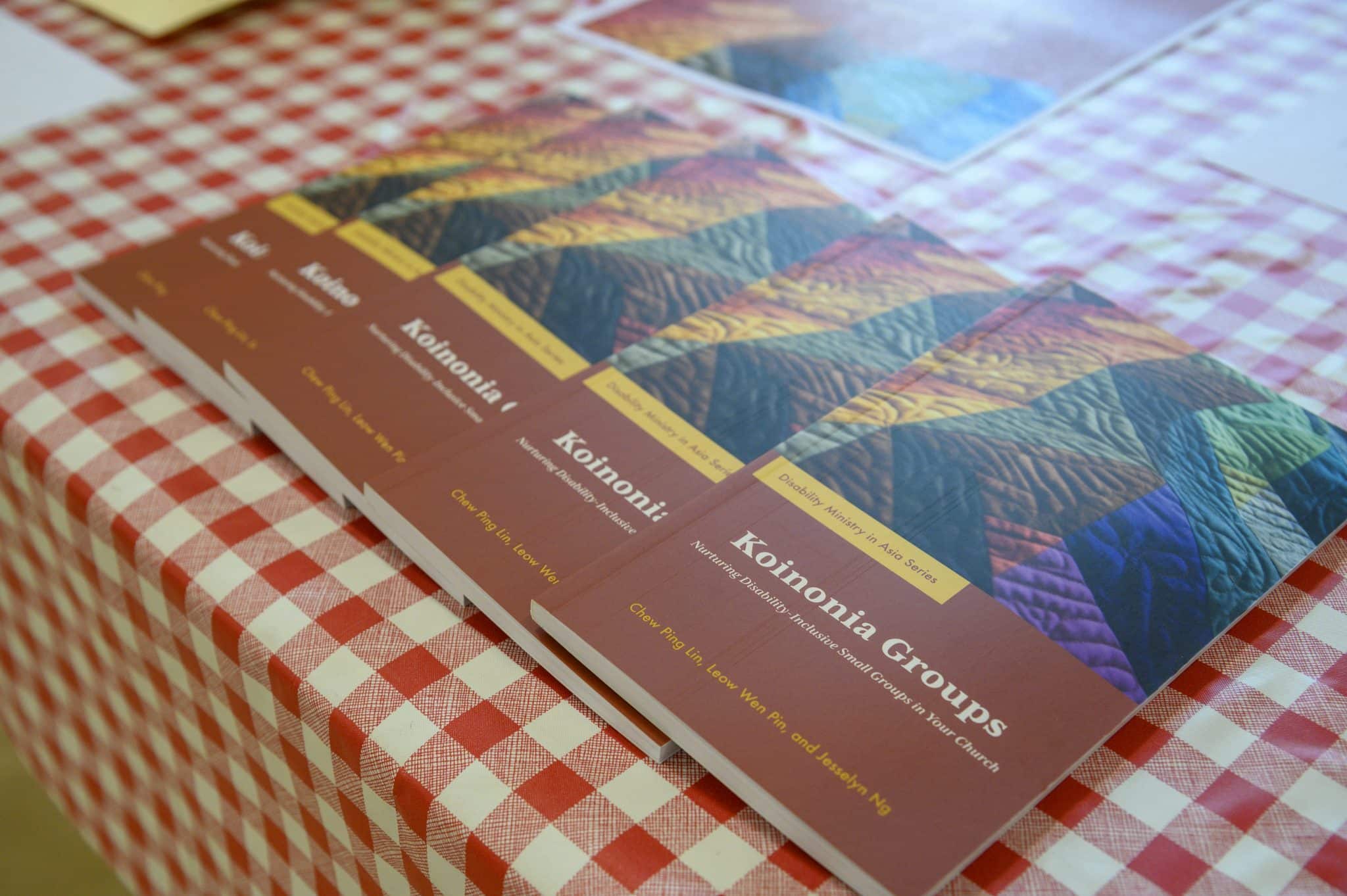
Koinonia Groups: Nurturing Disability-Inclusive Small Groups in Your Church is available via hardcopy and Kindle for $20 on KIN’s website. Photo courtesy of KIN.
Jesselyn Ng, executive director of KIN, told Salt&Light that the handbook was created to help churches disciple persons with disabilities effectively.
“(Discipling them) goes beyond creating an accessible environment or raising awareness,” she said.
“At the heart of Koinonia Groups is a commitment to enable all Christians to disciple each other and to be discipled by one another, whether you have a known disability or not.”
She added that since every part of the body of Christ is uniquely created and equipped with distinct functions, persons with disabilities must not only be included, they must be empowered to serve actively in church in various ways.
“The result of this is that our church may end up looking very different from what it is today, but embracing this change is essential if we are to remain faithful to God’s calling for us to function as one Body.”
Blurred lines
Though it has only been half a year since the group started, Ker Chiah has already been greatly blessed by it.
“We started out wanting to serve people with disabilities, but after some time the lines between those who are serving and those who are ‘being served’ have become blurred,” he said.
“God can work mightily in the diversity of the body of Christ.”
“In fact, as we have an attitude of openness to learn from one another, we find that it is often Alexander and the others that teach us and model certain strengths for us.”
For example, Alexander’s frankness has taught the group to be authentic as they share about the sins and hurts in their lives.
His simple faith has also encouraged the others to put aside their complicated ways of thinking, said Ker Chiah.
“God can work mightily in the diversity of the body of Christ. Those who are ‘less able’ in the eyes of the world are actually indispensable (1 Corinthians 12),” he added.
“We see a real manifestation of this in our group. We started off thinking that we want to do ministry, but now we see that everybody there is indispensable and helping each one of us grow in different areas.”
Learning and growing together
Asked if their discipleship group has faced any challenges, the men shared an answer common to any cell group.
“We get distracted quite easily! We tend to go all over the place and we’re not on the topic of discussion,” said Ker Chiah.
One strength of people with autism have is that they do not get easily offended, he noted.
“You can just say, ‘Stop! Don’t talk!’ and they are okay,” he said with a laugh.
“I feel very blessed. It’s not us leading. We are sitting and see how God works.”
Cell group leader Denis noted that, like any cell group, they are bound to encounter conflict or misunderstandings.
“These things will happen, but we must be mature enough to pick things up again, to have a big heart that God has given us to forgive,” said the retiree.
Alexander chimed in: “And a very big amount of patience!”
Patience with others is something that Alexander, a student at the Institute of Technical Education, has been learning through his discipleship group.
“They taught me how to be humble and how to be mature. Not to get too worked up if someone is unfair to another; God is the One who judges all,” he said.
“We are not the one to hold the scales and determine what is good and what is bad,” he added.
Ker Chiah is encouraged to see how everyone, including himself, has grown through interaction. He knows that they will continue to grow together as they share their lives with each other.
He said: “I feel very blessed. It’s not us leading, but we are seeing how God works.”
RELATED STORIES:
How do we enable differently abled persons to be full participants in the community of faith?
Helping children with special needs find their place in the world
We are an independent, non-profit organisation that relies on the generosity of our readers, such as yourself, to continue serving the kingdom. Every dollar donated goes directly back into our editorial coverage.
Would you consider partnering with us in our kingdom work by supporting us financially, either as a one-off donation, or a recurring pledge?
Support Salt&Light